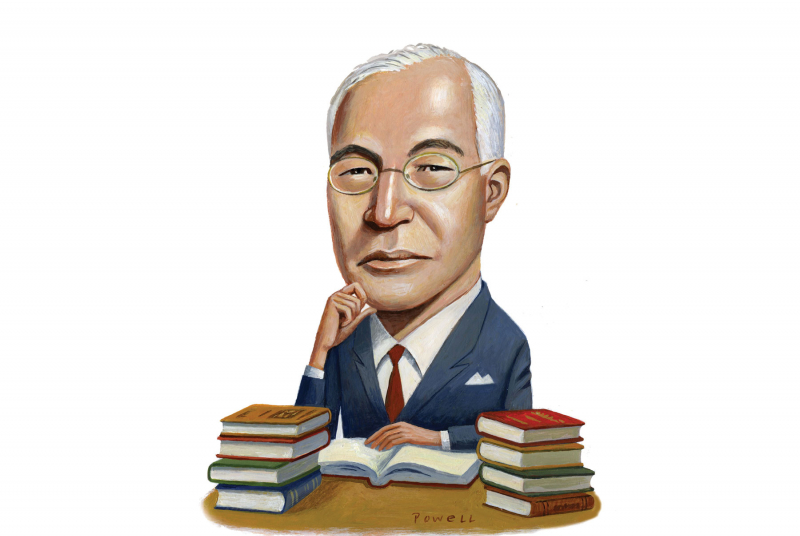
Scholar and Gentleman
The first student from Japan to graduate from Dartmouth and the first Japanese professor to work at a major American university, Asakawa (1873-1948) dedicated his life to his scholarship. He graduated with honors in German before teaching for 36 years at Yale, where his research shed light on the history of feudalism in Japan and Europe. During one trip to Japan in 1906-07, he acquired 21,520 volumes of Japanese books and materials for Yale and 45,000 volumes for the U.S. Library of Congress. The collections served as a foundation for Japanese research at both institutions. “Almost all that we in the West know of early Japanese feudalism is the result of his work and there is not a scholar in the field who does not stand in his debt,” wrote one reviewer.
Well Defined
Asakawa memorized the entire English-Japanese dictionary before attending Waseda University in Tokyo, where he earned a degree before coming to Dartmouth. He memorized two pages a day and tore them out until only the covers remained. As a sophomore, he was credited by a professor “as possessing the largest vocabulary of English words” of anyone in his class.
Never a Weakling
Dartmouth President William Jewett Tucker brought Asakawa to the College and helped him attend tuition-free. But the incoming student still had to earn money to make the trip. Later he wrote to his friends back home about fortitude: “Stop complaining. Do not be a weakling who is controlled by circumstances. Ever since antiquity, great men have come out of adverse circumstances.”
Hanover Homecoming
Asakawa served as an instructor at Dartmouth from 1902 to 1906. In 1905 he married New Haven, Connecticut, dressmaker Miriam Dingwall, whom he had met when he was a grad student at Yale.
Regrets
He worked at Yale for 30 years before he made full professor. A letter to Dartmouth President Ernest Hopkins, class of 1901, from Yale president James Angell acknowledged that Asakawa “has been very shabbily treated here….In recent years we have dealt more decently by him, but in earlier years the record was really quite wretched.”
Seeker of Truth
In his spare time, the professor wrote long essays about logic, beauty, and truth. “Ideals, conscience, and intuition—by using these three, one may be absolutely truthful, kindly and just, and finally be as close to the imperative of truth as is humanly possible,” he once wrote in a letter.
Honored and Remembered
Since 1992 the Dartmouth Club of Japan has presented its Kan’ichi Asakawa Award on nine occasions to individuals who have made “extraordinary contributions” to improving U.S.-Japanese understanding. Every summer, Dartmouth students studying abroad in Japan visit Asakawa’s high school and grave in his hometown of Nihonmatsu.










